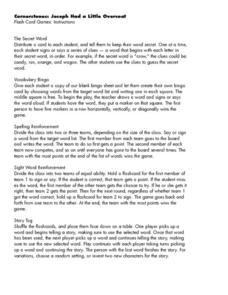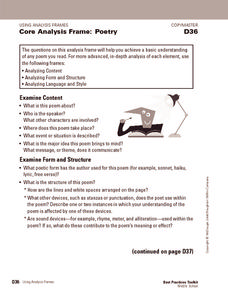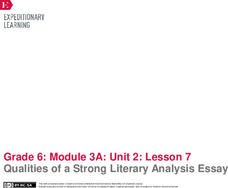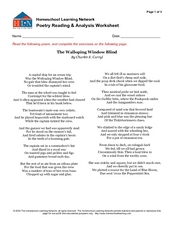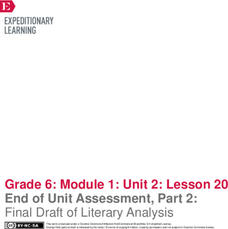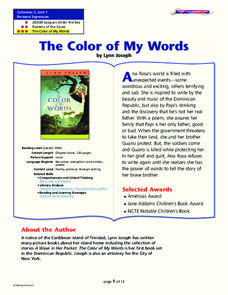National Clearinghouse for English Language Acquisition
Building Vocabulary: Prefixes, Roots, and Suffixes
Word roots, prefixes, and suffixes can hold the key to determining the meaning of a host of different words. Included here are five pages of prefixes, roots, and suffixes paired with their meanings and example words.
Curated OER
Using the Sounds of Words Reading Task
Young readers demonstrate phonemic awareness in words and blends, and recognize 100 high-frequency words. Use a nursery rhyme to point out rhyming words, and change the words by putting a new letter at the beginning. Each learner will...
Meadows Center for Preventing Educational Risk, University of Texas at Austin
Sight Word Fluency Lists 31 to 45
Practice makes perfect. Scholars get a lot of practice with sight word recognition as they continue to read words from each list until they master all words. Lists offer both new and review words.
PBS
Joseph Had a Little Overcoat: Flash Card Games
Expand the vocabulary of young readers with this series of five activities based the children's book Joseph Had a Little Overcoat by Simms Taback. From playing bingo to group storytelling, a variety of different approaches are presented...
Meadows Center for Preventing Educational Risk, University of Texas at Austin
Sight Word Fluency Lists 61 to 70
Every word matters. Increase reading fluency with word recognition practice. Scholars continue to practice reading words in each list until they demonstrate mastery. Readers practice both new and review word lists.
Curated OER
Beyond the Dictionary: Meaningful Word Study
Engaging lesson and activity ideas that grow pupils' word knowledge in all content areas.
Curated OER
Semantic Feature Analysis Chart: The Outsiders
Cool! Do you ned a way to increase vocabulary development and study a story's characters? What a great idea. Use this semantic analysis chart to study new vocabulary and the characters that appear in The Outsiders. You could also use...
Curated OER
Analyzing Poetry
Use this poetry analysis worksheet to help your learners understand a poem of their or your choosing. This resource asks class members to summarize the poem and analyze it by looking at voice, word choice, imagery, and theme. The...
Curated OER
Worksheet for Analysis of a Letter
Dear Nancy, how do you analyze a letter? Love, Trez. Dear Trez, you use a Letter Analysis Worksheet. Love, Nancy.
This richly detailed worksheet provides multiple questions that lead researchers step-by-step through the process of...
Houghton Mifflin Harcourt
Core Analysis Frame: Poetry
Dig deep into any piece of poetry with a set of analysis questions. Ponder the content, form, and language of poetry and provide some question for critique. The first two pages include general questions, and the remainder of the document...
Curated OER
Writing a Character Sketch
Combining descriptive and expository writing skills, middle schoolers create a character sketch about someone they know well. They use a graphic organizer to help them discuss a model character sketch and organize/write one of their own....
EngageNY
Qualities of a Strong Literary Analysis Essay
Read like a writer. Scholars read a model literary analysis in preparation for a similar writing assignment before annotating each paragraph for the gist. Next, pupils devise a list of qualities of a strong literary analysis essay.
Curated OER
Poetry Reading: Analysis Worksheet
Explore poetry by reading the poem "The Walloping Window Blind" by Charles E. Carryl, and completing an analysis with your class. The worksheet provides the entire poem, a graphic organizer to help with summarizing and paraphrasing, and...
Florida Center for Reading Research
Vocabulary: Morphemic Elements, Root-A-Word
In pairs, scholars draw cards, read the word, and identify its root. Learners place the card on a tree-themed worksheet to sort words by their roots.
EngageNY
Getting the Gist and Determining Word Meaning: Paragraphs 20–23 of Steve Jobs’ Commencement Address (and connecting to Chapter 10)
Groups create a list of the character traits of Steve Jobs and Buddy, the main character of Christopher Paul Curtis' Bud, Not Buddy, and share and select evidence from Jobs' 2005 Stanford University Commencement Address to support their...
EngageNY
End of Unit Assessment, Part 2: Final Draft of Literary Analysis
Row, row, row, row four. Classmates take a look at row four in the writing rubric and begin the exercise by identifying any unfamiliar words. Literary scholars then use feedback from their initial drafts and the writing rubric to begin...
Curated OER
Music in Words
Your class can build strong, well-represented opinions about the music they hear. They listen to, and share thoughts about, a piece of classical music. Then they write a piece of music or a poem, and analyze their peers' work and their...
Curated OER
The Color of My Words
Explore the story The Color of My Words by Lynn Joseph using this resource. Learners answer comprehension questions, fill in graphic organizers, and write a poem.
Winterhill School
Poetry Analysis
Gain greater insight into poems using a poetry analysis worksheet. Here, scholars follow steps and answer questions to dissect any poem. Topics include the poem's meaning, theme, technique, and structure, as well as personal thoughts and...
Novelinks
The View From Saturday: Concept/Vocabulary Analysis
Design your unit on The View From Saturday by E.L. Konigsburg with a concept and vocabulary analysis resource. It outlines the plot, literary elements, vocabulary issues, and any possible considerations for planning a differentiated...
Florida Center for Reading Research
Vocabulary: Morphemic Elements, Root-O!
Young readers get to the root of unfamiliar vocabulary with a collaborative learning activity. Given a deck of root word cards and copies of a graphic organizer, pairs of students take turns flipping over cards and brainstorming...
Curated OER
Here's an Instant Activity for December 20, 2004
Help learners improve their spelling skills by completing a word analysis activity. They complete the instant activity by finding the hidden words inside each given word. There is a menu of skill ideas and various ways suggested to...
Denver Art Museum
Putting Images into Words
Engage your class in art analysis of Indian Look-Alike by Melanie Yazzie. Using this work of art as inspiration, writers compose a poem or short story. After a peer review session, the teacher conveys information about the work of art as...
Curated OER
In The Words of Abraham Lincoln...
High schoolers explore the words of Abraham Lincoln. In this Abraham Lincoln lesson, students analyze segments of "The Gettysburg Address," his annual address to Congress in 1862, and his letter to Mrs. Bixby. High schoolers conduct...
Other popular searches
- Word Analysis and Decoding
- Word Analysis Strategies
- Word Analysis Skills
- 500 Word Character Sketch
- Vocabulary Word Analysis
- Powerpoint Word Analysis
- Word Analysis 1.5
- Ell Reading Word Analysis
- Vocabulary, Word Analysis
- Word Analysis 15
- Ell+reading Word Analysis
- Word Analysis Worksheets





